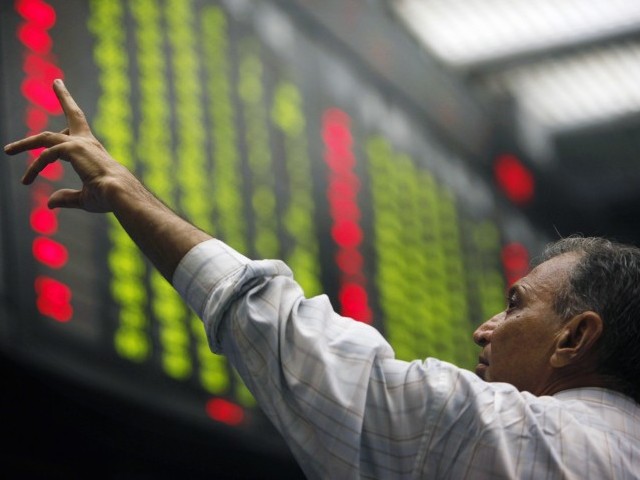KARACHI: The political turmoil that has embellished the Pakistan Stock Exchange since the removal of ex-Prime Minister Nawaz Sharif continues to tear through the stock market.
As the uncertainty persists and stock market’s dilly dally in its influence, $18.5b have been erased because of it, reported Express Tribune. It follows the high’s attained by the benchmark KSE-100 index of 52,876.46 points on 24th May, after which the downfall initiated.
Share prices have nosedived and no equity-based fund has achieved a positive return in last nine months. In contrast to 2016, PSX had been proclaimed the best performing stock market of 2016 in Asia with an astounding return of 46pc.
Contrarily 2017 has been the exact opposite for PSX, as it has endured a terrible run which has resulted in it becoming the worst performing stock market of Asia.
On a positive note, Profit had earlier reported this week that foreign investors had bought $54m worth of Pakistani stocks since the start of September and eyed the market as one of the cheapest emerging markets but buyers haven’t come into action till now.
PSX had divested 40pc of its stake to a Chinese syndicate at Rs28 per share, and till Thursday it had lost 30pc of its total value of $86m.
2017 remains the worst performing year for the stock market since 2008 as turmoil/uncertainty has increased and volumes have dried up.
This followed the debacle on the 5th of July when PKR fell sharply both in the interbank and kerb market to reach a 2.5 year high of Rs108 from Rs104.91 the previous day. The PKR had remained relatively stable since August 2015, and according to a Topline Security report, the currency devalued annually by 5 percent in the last decade or so.
As per research released by the International Journal of Accounting and Economics Studies on the stock market fiasco, which cited that political events and performance of the PSX were closely interconnected. The research conducted into three earlier elections by this think-tank revealed that political events in the country have always had a significant impact on stock returns.
The study added that before elections in 2002 and 2008, the stock market had experienced a steep level of uncertainty in comparison to 2013 when it surged after the PML-N came into power.
And continuing the vicious cycle of uncertainty, the implication of Finance Minister Ishaq Dar in graft cases has also impacted the finance ministry affairs as his focus has shifted towards defending himself from all these charges.
Dar has been a strong advocate of keeping the PKR strong and ruled out any devaluation instead the government recently pushed to increase regulatory duties on over 350 items to curb imports and control the widening current account deficit.
According to Alfalah GHP CEO Maheen Rahman, “Banking sector is likely to be a major beneficiary of the devaluation, as higher inflation could push interest rates higher. Oil and gas exploration, power companies and export-oriented sectors such as textiles and technology companies are also likely to benefit.”
But increasing regulatory duties on items to rein in imports and current account deficit are short-term fixes. Instead what requires to be done is a reformation of tax system and broadening its base, improving business environment and ease of doing business are the key to economic growth.
According to Samiullah Tariq, director research and business development at Arif Habib Limited the PSX now is well cushioned to weather any storms of crashes like in 2008 when the stock market had to be shut down.
He added “With the market already reclining from its all-time high of near 53k, chances of an upside are likely to overshadow bearish notions.”
























